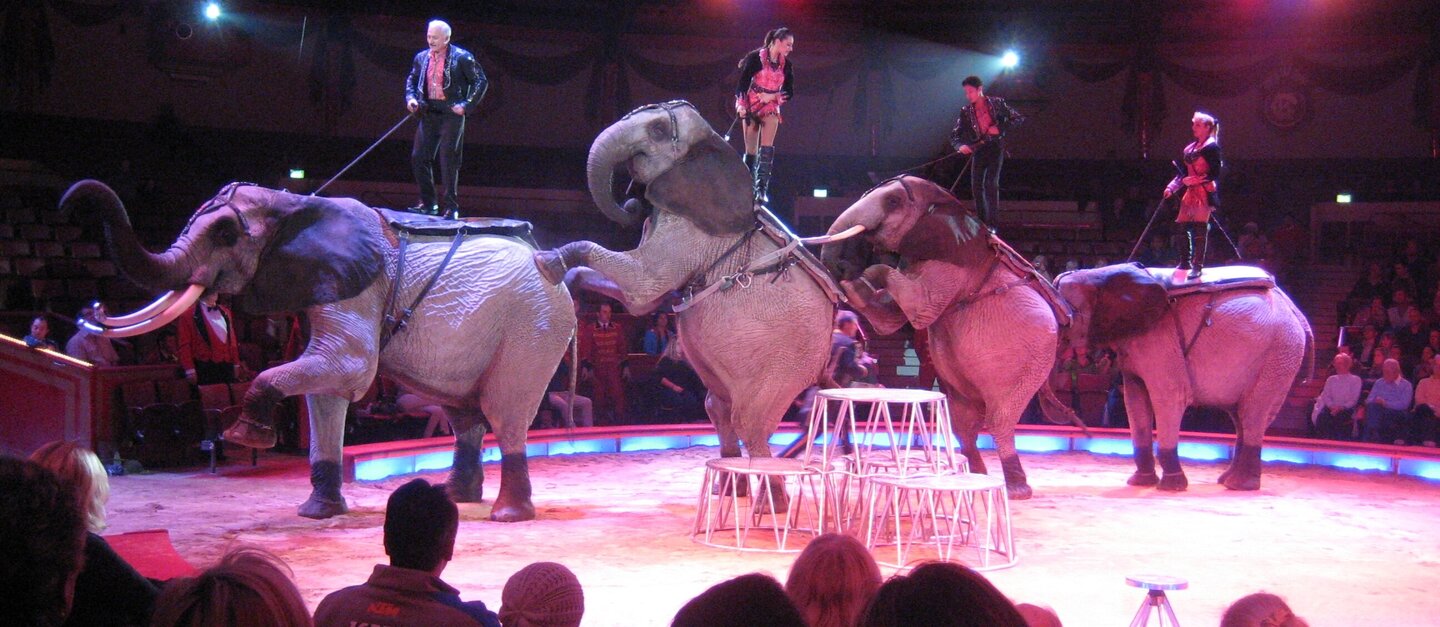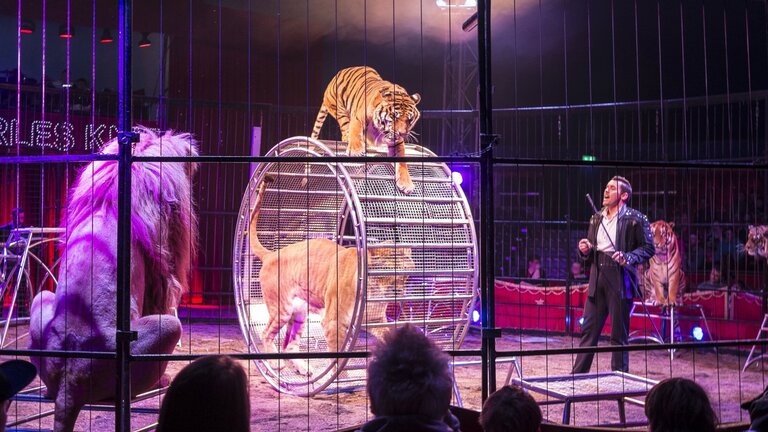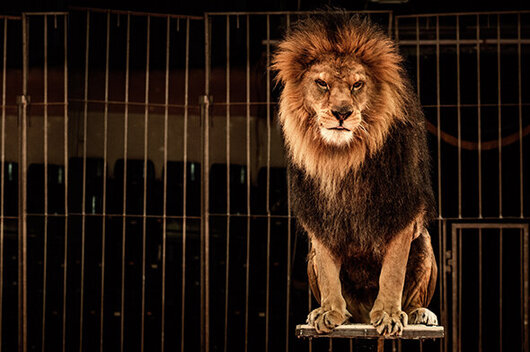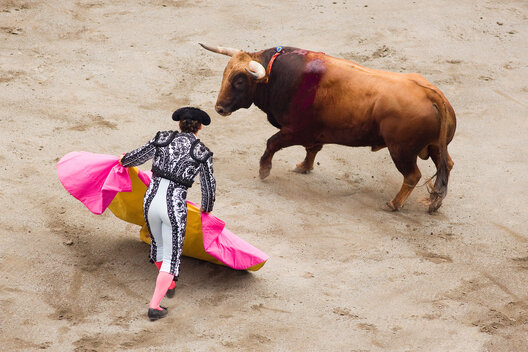Why wild animals suffer in circusesAnimals in the circus: Torture in the circus ring
For many people, a visit to a circus with animals may be fascinating, but elephants, lions, monkeys and the like often endure a sad existence for years. Although it is impossible to keep them in a species-appropriate manner in a circus, the animals are still put on display and have to suffer for the entertainment of humans. The German Animal Welfare Federation has been calling for a ban on wild animals in circuses for decades.
In the circus, there is thunderous applause for breathtaking tricks. But while artists perform voluntarily in the circus ring, animals are trained to do so. Unfortunately, many circuses in Germany use animals for entertainment purposes, including wild animals. For them, life in the circus often means years of suffering. Whether tigers, kangaroos, zebras or sea lions - as circus animals they are exposed to massive pressure, have to constantly move from place to place in exhausting transports and endure miserable housing conditions.
Agonizing dressage
No elephant voluntarily stands on its hind legs all the time and a lion does not jump through a hoop of its own free will. The animals in the circus are forced to do so. Such dubious tricks have nothing to do with their natural behavior. The animals are trained from an early age, sometimes by force, to perform them anyway. Tools that are contrary to animal welfare are also used, such as whips or elephant hooks.
Cruel everyday life for circus animals
Stressful journeys are part of everyday life for circus animals. On average, they have to change venues up to 50 times a year. For the most part, the animals are trapped in transport vehicles, cages or enclosures that are far too small. Animals that would otherwise travel for miles through the countryside have little opportunity to move around, have little contact with other animals of their own species and are not sufficiently occupied. Medical care is also inadequate in some cases - with fatal consequences for the animals: from massive health problems to severe behavioral disorders and even early death. African elephants in circuses, for example, usually do not even reach the age of 30, although they can actually live for up to 60 or even 70 years.
Numerous accidents and outbreaks
Terrible accidents happen time and again during the shows: Animals fight back against trainers or fall into the audience. The circus report by the European umbrella organization Eurogroup for Animals, of which the German Animal Welfare Federation is a member, reveals drastic accident statistics involving wild animals in circuses. Almost 500 incidents involving almost 900 circus animals were documented across the EU between 1995 and 2019, almost half of which occurred in Germany.1 Outbreaks also occur regularly: For example, in October 2019, a zebra escaped and was then shot by the police - a far too radical step. Such incidents can also endanger human lives. The most drastic case occurred in June 2015 in the Odenwald when a circus elephant killed a walker.
In figures
circus animals have to change venues on average once a year.
years is how old African elephants can live. In the circus, they usually don't even reach the age of 30.
Accidents and outbreaks involving circus animals occurred between 1995 and 2019.
EU countries have banned or restricted the keeping of wild animals in circuses. Germany brings up the rear.
Lack of requirements and no ban in Germany
With the exception of Germany, all 27 EU countries have banned or restricted the keeping of wild animals in circuses, most recently also France and Italy, where implementation is still pending. Germany is therefore bringing up the rear within the EU. Apart from the general regulations of the Animal Welfare Act, there are not even any legally binding requirements for keeping animals in circuses in Germany. This means that the veterinary authorities cannot impose stricter requirements either. All circus animals are subject to even less stringent requirements than their counterparts in zoos, animal parks or private husbandry. Although the "Circus Guidelines" from the Federal Ministry of Food and Agriculture outline the husbandry requirements for certain animal species, they are not legally binding. Confiscation of wild animals from poorly kept circuses is also hardly legally possible, and placing animals in sanctuaries is time-consuming and costly, especially as there are not enough places. Circuses also frequently change their location, which means that other authorities are responsible for the circus.
Occasional municipal wildlife bans
More and more local authorities have recognized that animals suffer in circuses. They are discussing ways of banning circuses with wild animals, for example by no longer making municipal areas available. Even if such municipal bans are difficult to implement, the German Animal Welfare Federation welcomes the initiatives. Unfortunately, several such bans have been overturned by the courts in recent years with regard to circus operators' professional freedom. This makes a nationwide ban on wild animals in circuses all the more important.
This is what the German Animal Welfare Federation demands
For the German Animal Welfare Federation, it is clear that a ban on wild animals is unavoidable due to the serious suffering of circus animals. We have been campaigning for many years to ban the keeping of monkeys, elephants, bears, rhinos, hippos, big cats and all other wild animals in circuses. You too can make your contribution: please refrain from visiting circuses with animals and instead take advantage of alternative offers for which no animal has to suffer.





